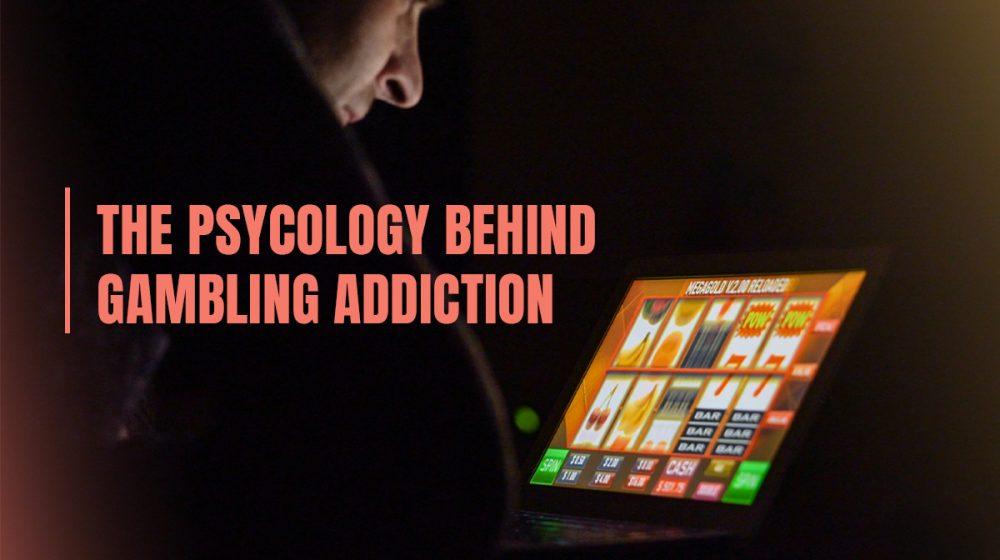The Psychology Behind Gambling Addiction Explained
Gambling is a form of entertainment. It can be exciting for players knowing that each time they play, they have an opportunity to win real money prizes. Most gamblers approach their favourite games knowing that the house has the edge. But, the thrill of chasing a win can cause some people to develop problematic gambling behaviour.
Today, we will take a closer look at the psychology behind gambling addiction. We’ll discuss how gambling affects your brain and what causes a person to develop compulsive gambling habits. We’ll also discuss the telltale signs of gambling addiction, along with where a person can get help for problem gambling.
Facts About Gambling You May Not Know
Most people are attracted to gambling for the same reason, taking a chance at winning money. There are certain things about gambling that every player should know to get a deeper understanding of how pathological gambling begins. Let’s take a look at 3 facts about gambling that help explain this.
💡 Good Mood Increases Gambling Activity
Excitement puts people in a good mood. Since gambling games are exciting, people are generally in a good mood when they play. The thing is, it’s not just when players win that they’re excited. Many players still find their favourite casino games or sport betting events exciting when they lose bets.
💡 Superstitions & Methods to ‘Beat the System’
For every casino game, there are strategies and superstitions that people believe could help them beat the system. For almost every betting game, the house will have the edge. The only way to beat this is with luck. However, some players believe that they could get lucky if they keep using a certain strategy or follow a superstition. This is a common way to develop compulsive gambling habits.
💡 Change of Outcome Expectation
One scenario that happens far too often is near misses. A gambler who is normally responsible will set a budget for the night. When they play a game, they come extremely close to winning the maximum prize. This gives them the illusion of control thinking that they will hit that big win tonight. Many gamblers go over budget because of this mindset. Also, a sudden change in the expected outcome of the result of the bet occurs once the gambler places the bet, making them suddenly become overly optimistic.
How Gambling Can Affect the Brain?
As we mentioned above, gambling is exciting. Whether you’re playing a bet on a sporting event or playing a real-money casino game, there’s a thrill behind every bet placed. Any time a person is gambling, their brain releases dopamine.
Basically, dopamine is a feel-good chemical. When your brain releases dopamine, you’re in a better mood, excited, and feel overall joy in the moment. It can be hard for some people to stop gambling when this occurs. The dopamine release has them enjoying the moment and they don’t want it to end.
External Factors Which Can Lead to Problem Gambling
Now that you understand more about how gambling affects the mindset, you might be wondering why problem gambling only affects certain people. Although almost every gambler experiences a rush of dopamine, problem gambling only seems to affect a small percentage of people.
How come some people know when to walk away, while others don’t know when to draw the line? Pathological gambling doesn’t just occur from having a good time. There are certain external factors that make a person more likely to be affected by compulsive gambling.
🔴 Environment
Where a person lives could affect their gambling habits. People that live in communities that host frequent gambling events are more likely to develop compulsive gambling habits. This doesn’t just apply to nearby casinos, but also non-government-regulated gambling activity that could occur in the community.
For example, someone who lives in a community where poker parties are held often may be at a higher risk of a gambling disorder.
🔴 Access to Resources
As mentioned above, any gambling activity that isn’t government-regulated puts people at a higher risk of problem gambling. This is because all government-regulated gambling activity features resources that people can use for help with a gambling disorder. Non-regulated gambling activity typically doesn’t feature support for the gamblers.
🔴 Biology
Biological factors can affect how a person’s brain works. This can include their decision-making ability, how they process information, and how they control their impulses. People who suffer from an underactive brain’s reward system may be at a higher risk of becoming pathological gamblers.
🔴 Culture
Gambling plays a role in certain cultures. If you’ve grown up in a background where gambling is common, it may be more difficult for you to realise the signs of problematic gambling. It’s common for people not to see a problem if everyone else around them is doing the same thing.
Top Myths of Gambling
One problem that leads people to pathological gambling is not being able to separate gambling facts from gambling myths. Let’s take a look at some of the biggest myths about gambling that lead to addiction.
- Only “bad guys” get addicted. ❌ You may be thinking a gambling addict is a criminal or a person with a history of drug addiction. This isn’t true at all. Addiction can happen to anyone.
- Avoid big losses by playing hot games. ❌ In reality, there is no such thing as hot or cold games. Some games may be advertised as hot because there have been a lot of wins recently. But, the outcomes are always 100% random and there is no guarantee you will win.
- You won’t lose a lot if you know the game well. ❌ This is a false myth because you can never predict the outcome of a casino game. Even the professionals lose as often as they win.
- Problem gamblers bet every day. ❌ You don’t have to gamble every day to have a problem. If the thought of gambling invades your mind and causes you to lose focus, then you could be at risk of developing a gambling disorder.
- Wealthy people can’t get addicted. ❌ If a person makes a lot of money, a big loss may not hurt them as much as someone who doesn’t have as much. But, this doesn’t mean that they aren’t at risk of pathological gambling. Pathological gambling can affect anyone and they can lose more than just money. It also affects their career, relationships, and mental health.
What is Gambler’s Fallacy
Gambler’s fallacy can lead to compulsive gambling habits. This is when a gambler believes that if one thing occurs frequently, the opposite will happen next. Many strategies are developed for table games and slots based on this superstition alone.
Let’s take a look at what gambler’s fallacy is using roulette as an example.
A player is watching a table and notices that the last 3 numbers called have all been high. Gambler’s fallacy would have them putting their money on low for the next round.
It’s important to remember the outcome of gambling games is always random. It’s not possible to manifest certain end results based on what occurred in the past.
When Does Gambling Become a Problem?
There are some people that can gamble on a daily basis without getting addicted. On the other hand, there are people that may not gamble daily, but suffer from a gambling disorder. So, how can people tell the signs when gambling has become a problem?
- You can’t stop talking about gambling.
- You feel bored when you’re not playing casino games.
- You bet on every sporting event you watch.
- Your moods alter to extremes based on the outcome of your bet. (You feel extremely happy when you win, but get extremely anxious or upset when you lose)
- You’re chasing losses to win back money you’ve lost.
- You’ve borrowed money to pay for gambling.
- You haven’t been able to pay for something you needed (ie- groceries, phone bill, gas, rent, mortgage) because you spent money on gambling.
- You neglect family, friends, and self-care to spend time gambling.
- You use gambling as a way to escape reality or your personal problems.
- You’ve lied to people that trust you about your gambling.
Who to Talk to About Problem Gambling?
Gambling addiction is real, but it’s not untreatable. If you show any signs of compulsive gambling, there is help out there. Speak to your doctor about cognitive behaviour therapy methods. The right type of therapy can help you overcome your addiction while also developing better coping habits.
Tips to Gamble Responsibly
Gambling isn’t bad. It can be a lot of fun when it’s approached the right way. The most important thing to remember before gambling is that it’s not a way to make money. It is a form of entertainment. If you happen to win, that’s just an additional bonus. If you want to enjoy your gambling experience without the risk factors, here are our tips for gambling responsibly.
- Never gamble more than you can afford to lose. Remember, there is no guarantee that you will win. So, always approach the game with the mindset that you could lose.
- Stop while you’re ahead. This rule applies to losing streaks and big wins. Not knowing when to quit is the ultimate way to go broke. Never chase losing streaks in hopes of getting a win. This rarely works out for gamblers. It’s also a good idea to cash out after a big win so you don’t bet away your big prize.
- Only play with your own money. Never go into debt to gamble.
- Set limits before you play. There are a few limits that every player should set for responsible gambling. This includes your loss limit, your limit for time playing, and your wagering limit.

Oliver Jones is a seasoned journalist with a specialty in the iGaming sector. With a robust background that marries 11 years in mainstream journalism with 4 years dedicated to the online casino industry, Oliver provides a unique blend of relevant news and insightful analysis.
Read more about the author